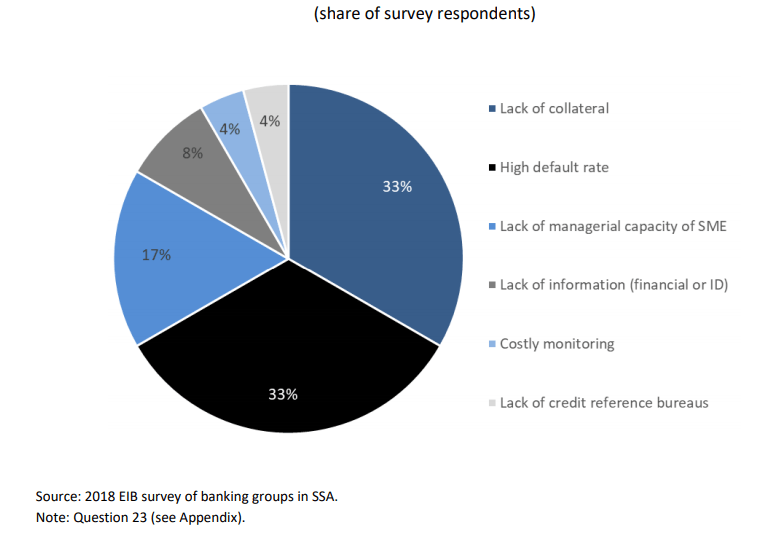African Guarantee Fund Approves $2.6m For Female Entrepreneurs In Benin
African Guarantee Fund in collaboration with Ecobank Benin for SME financing African Guarantee Fund for Small and Medium Enterprises (AGF) has granted a line of portfolio guarantee to Ecobank Benin in the amount of CFAF 1.6 billion to support SMEs, women entrepreneurs, and the green economy in Benin. The signing event took place in the offices of Ecobank Benin’s headquarters in Cotonou.

This line of guarantee, signed by Lazare NOULEKOU, Managing Director of ECOBANK Benin, and Bendjin KPEGLO, Managing Director of AGF WEST AFRICA, makes it possible, on the one hand, to overcome the difficulties associated with the absence of guarantees encountered by SMEs/PMI and which constitute an impediment to the financing of their activities, and, on the other hand, to further increase its commitment to the SME/SMI segment while promoting the
Read also Ecobank Offers Bancassurance to SMEs
Bendjin KPEGLO, Managing Director of AGF WEST AFRICA, declared during the signing ceremony:
“Governments in our nations have put in place development plans, with one of the top priorities being support for SMEs and lowering the unemployment rate.” Our subregion’s new banking regulations place additional obligations on banks in the context of their financing activities in order to make them more efficient and solid. To achieve these objectives, banks require dependable partners, particularly in the SME/SMI category, which constitutes the majority of the economic fabric while also being more vulnerable and having problems securing financing.
To that purpose, AGF is one of the continent’s reference partners, owing to the benefits associated with its AA- rating from Fitch Ratings and its illustrious shareholders. In this context, the cooperation between Ecobank Benin and AGF West Africa provides comfort to the bank for the financing of SMEs in Benin, with an emphasis on SMEs carried out by women (under the AFAWA program) and those whose operations are in line with environmental protection.
Read also Tofino Capital Launches $10 million Fund Targeting Startups In Africa
This portfolio guarantee is part of the AFAWA program, a joint initiative of the AfDB and the African Guarantee Fund aimed at unlocking up to USD 3 billion in loans to African women-owned SMEs.
Mr. Lazare NOULEKOU, Managing Director of ECOBANK Benin, stated, “It is a relationship that provides us greater comfort and flexibility in the financing of Beninese SMEs / SMIs, and we are happy to make it a reality today.” Small and medium-sized enterprises (SMEs/SMIs) are the backbone of the economy, particularly in developing nations where they contribute to job creation and revenue generating. Their influence is considerably higher in Benin, where they account for 90% of the industrial sector. This is why, at Ecobank, we have essentially dedicated a business unit to them: The Commercial Bank.
This collaboration will allow us to better support them based on their needs, specifically the financing of stocks, assets, and contracts for which they are bidding or have been declared successful bidders through the issuance of various guarantees ranging from the bid to the holdback, going through the advance of start, of good end of execution. Furthermore, foreign trade captures our attention with a diverse range of items such as letters of credit, documentary remittances, endorsements, and draft discounts, among others.
Beyond this non-exhaustive list of financing options, Beninese SMEs/SMIs can benefit from Ecobank’s digital banking products, such as EcobankPay, smart Digital Payment Terminals (TPE), Bank Collect, and Omni Lite, which enable them to make secure and autonomous payments and collections, as well as manage cash flow through digital solutions.
Read also African Development Bank Earmarks €10 million Equity Investment to Drive Technologies
Ecobank also encourages female leadership development through its Ellevate initiative, which strives to unlock the potential of women-led or women-focused businesses by providing solutions for better cash management, low-interest loans, and value-added services.
Charles Rapulu Udoh

Charles Rapulu Udoh is a Lagos-based lawyer, who has several years of experience working in Africa’s burgeoning tech startup industry. He has closed multi-million dollar deals bordering on venture capital, private equity, intellectual property (trademark, patent or design, etc.), mergers and acquisitions, in countries such as in the Delaware, New York, UK, Singapore, British Virgin Islands, South Africa, Nigeria etc. He’s also a corporate governance and cross-border data privacy and tax expert.
As an award-winning writer and researcher, he is passionate about telling the African startup story, and is one of the continent’s pioneers in this regard. You can book a session and speak with him using the link: https://insightsbyexperts.com/view_expert/charles-rapulu-udoh









